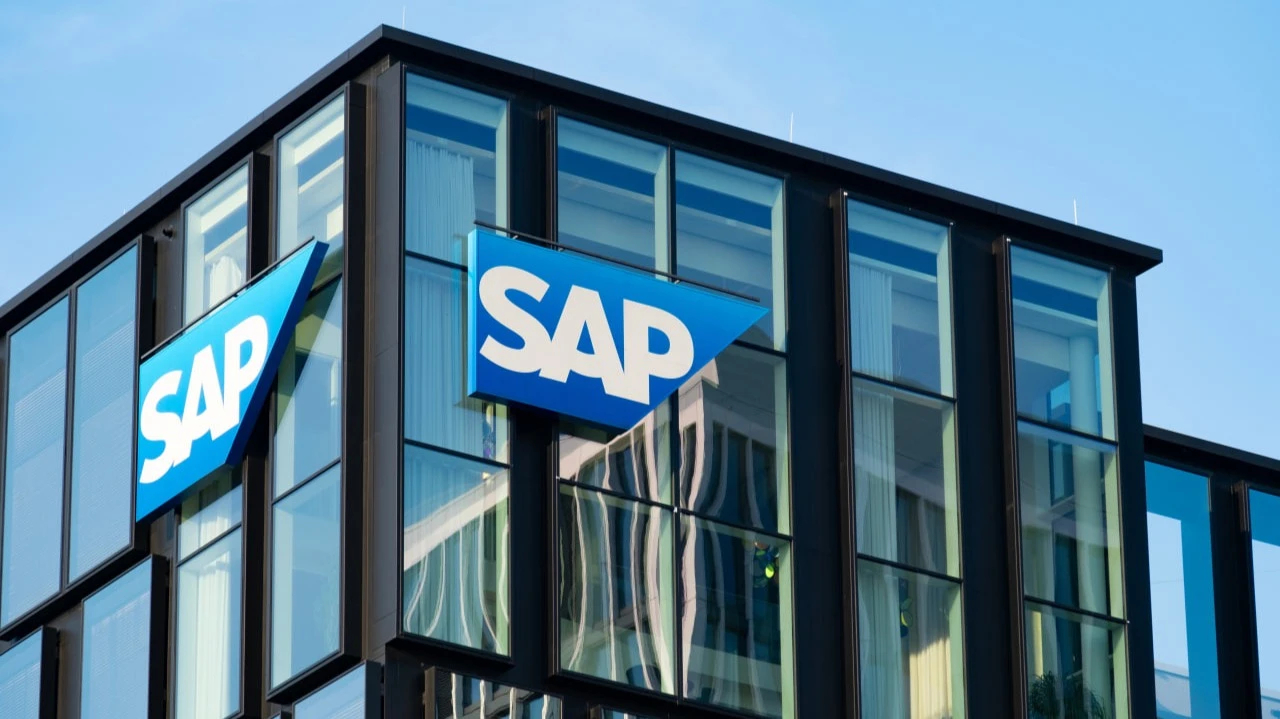SAP shares fall amid currency risks despite growth in cloud services revenue
The weakening of the dollar against the euro reduced SAP's revenue, about half of which is denominated in U.S. currency

Quotes of software developer SAP fell in trading on July 23, despite the growth of cloud revenue and profits: investors are concerned about currency risks and uncertainty in global trade. The company warned of pressure from a weaker dollar and a possible slowdown in third-quarter growth, while maintaining its full-year forecast. The U.S. remains a key market for SAP, and tense trade talks are heightening scrutiny of its business outlook.
Details
Securities (ADR) of the most expensive company in Europe - SAP - fell in price by more than 6% during trading in New York on July 23. Quotes fell after the developer expressed concern over the instability of tariff policy and currency fluctuations, despite strong growth in revenues from cloud services, write Bloomberg.
In its second-quarter report, published on July 22, the German software giant said its cloud and software revenue rose 11% to €7.97 billion ($9.4 billion). That result was just below analysts' average forecast of €7.99 billion, according to data compiled by Bloomberg. Separately, cloud revenue rose 24% to €5.13 billion (excluding currency fluctuations), which was also slightly below analysts' expectations.
The company maintained its full-year cloud solutions revenue guidance of €21.6 billion to €21.9 billion (Wall Street analysts had forecast €21.31 billion), but expects currency fluctuations to reduce growth in that revenue by 5 percentage points in the third quarter (assuming rates remain at June 30) and by 3.5 percentage points year-over-year.
SAP CFO Dominic Azam said that the ongoing uncertainty is increasing pressure on global trade and it is becoming increasingly difficult for customers to make informed decisions. He stressed that management is preparing the company for less favorable scenarios to protect earnings and free cash flow in 2025, the agency said.
One of the key pressures on SAP's results is the weakening of the U.S. dollar, in which about half of the company's revenue is generated, against the euro, in which it does its financial reporting, accounts CNBC. A 1 percent devaluation of the dollar would mean a slowdown in revenue growth of about half a percentage point for SAP, Azam said.
What are the analysts saying?
Investors are closely watching how currency fluctuations will affect the company's outlook for next year, said Morningstar senior equity analyst Rob Hales.
"Equity prices could come under pressure when guidance starts to give the first signals of a possible currency impact in 2025," he said.
"Overall, we believe SAP continues to successfully execute its strategy in a challenging market environment, supported by a strong product offering, an AI roadmap and structured projects for long-term migration to the cloud. New customers in the second quarter include iconic companies such as Alibaba," Deutsche Bank analysts said. Их оценку приводит CNBC.
Several analysts have reiterated their ratings on the company and are recommending its stock for a buy. Among them are Warburg Research, Deutsche Bank, Jefferies and others.
However, not all feedback has been positive, with analysts at TD Cowen and Piper Sandler lowering their target prices on SAP shares, CNBC notes.
Analysts at UBS indicated in a research note last week that SAP has likely significantly increased the amount of incentives offered to customers as they move to the cloud, and that could affect the company's free cash flow next year,
What else SAP said in the report
SAP's cloud order book -- a measure of future cloud sales -- rose to 18.1 billion euros in the second quarter, falling short of analysts' expectations of 18.5 billion euros. The figure reflects the amount of cloud revenue SAP has already locked in for the next 12 months, Bloomberg notes.
Adjusted earnings per share totaled 1.5 euros ($1.76), according to the report, but analysts whose estimates were reported by Visible Alpha had forecast earnings of 1.1 euros.
SAP's revenue for the quarter was 9.03 billion euros ($10.61 billion) - roughly in line with expectations.
The software company's free cash flow rose 83% to 2.36 billion euros, about 1 billion euros above market expectations. The figure is considered a benchmark for dividends, notes Reuters.
Adjusted operating profit added 35% to €2.57 billion. These figures were broadly in line with analysts' forecasts.
Context
The U.S. remains one of SAP's key markets, and investors are wondering how businesses will be affected by potential cost-cutting amid tense trade disputes and tariff negotiations by President Donald Trump's administration, CNBC writes.
The situation with a potential trade agreement between the U.S. and the European Union remains uncertain. However, global stock markets reacted with optimism to the news of the July 22 agreement with Japan, which sets the duty on exports to the U.S. at 15%.
SAP sells software to automate key business functions such as finance, human resources and procurement. Over the past two years, the company has been actively promoting artificial intelligence-based services to encourage customers to migrate from outdated on-premises servers to cloud-based IT infrastructure, where average spending per customer is higher. Since the beginning of 2025, the company's securities have risen more than 24%, notably outperforming the S&P 500 index, which is up 7.3%. Investors are confident in the company's ability to drive revenue growth through cloud-based solutions and AI-powered tools aimed at improving efficiency and productivity in an uncertain economic environment, notes Barron's.
This article was AI-translated and verified by a human editor
